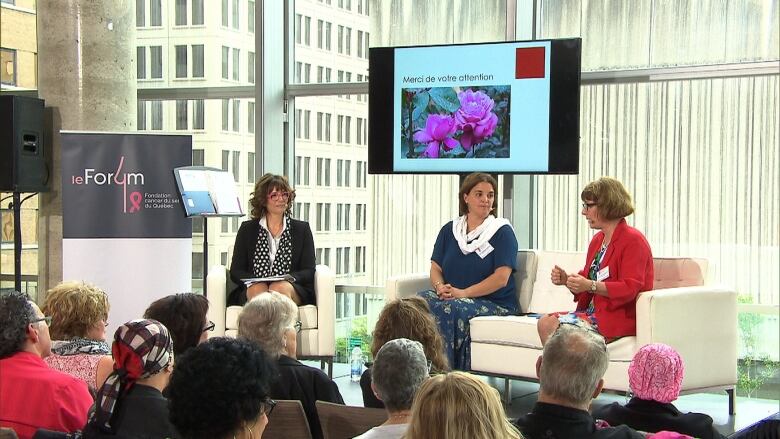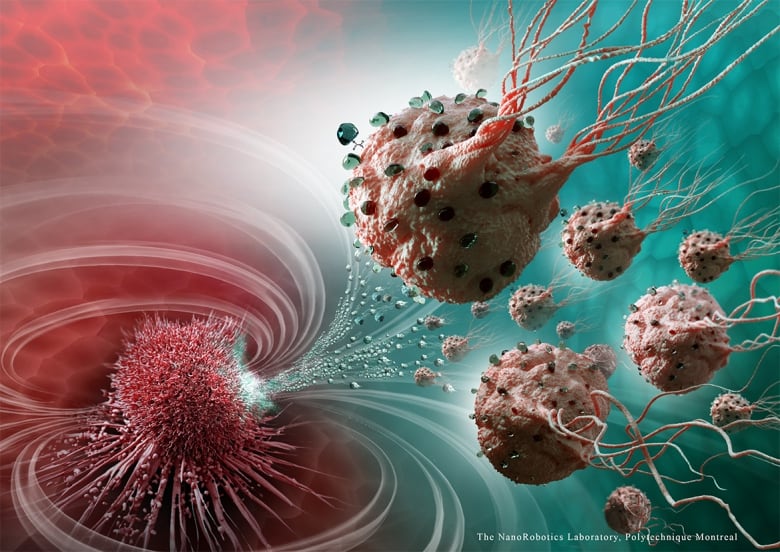'A lot of promise' for nanorobots to treat breast cancer, says Montreal doctor
Breast cancer conference in Montreal addresses scientific advancements, support for patients

Cancer patients in Montreal could be the cusp of being treated with nanorobots thanks to revolutionary technology being developed at the Jewish General Hospital.
The experimental treatment sees scientists create bacteria that behaves like a tiny robot carrying chemotherapy drugs to cancerous tumors in the body.
These bacteria-based nanorobots can be guided with magnets — they have microscopic metallic crystals — but also zero-in on tumours autonomously by being drawn to low-oxygen areas.
This form of treatment means patients would be spared more invasive and aggressive cancer treatments such as radiation therapy.
"You have to inject millions of them in order to see it on imaging, so that's how small it is," Dr. Té Vuong said of the nanorobots.
"The advantage of being very small is that they can penetrate the tumour very easily, without any barrier."
Vuong, the director of the Segal Cancer Centre's Radiation Oncology facility at the Jewish General Hospital, said her team's research is leading the rest of the world.
"We're very excited because there is a lot of promise for our patients and this will allow us to move to a new generation of treatment for cancer," she said.
-
Bacteria coaxed to deliver chemo drugs right inside tumours
- Nanotechnology on the cusp: Bob McDonald

The team's efforts were presented in Montreal on Saturday during a scientific forum organized by Quebec's Breast Cancer Foundation.
While Vuong's team has had success in their trials with rats and mice, they are waiting for approval from Health Canada and the funding they need to move forward.
If everything goes smoothly, Vuong hopes they could begin clinical trials on humans in the next 18 months.
"Presently we are the only people in the world who are working at this level," said Vuong. "So it's quite exciting for Quebec because we are really leading in this field."
Inspiring hope
The one-day conference gave experts in radiation oncology, surgery, psychology and biochemistry a chance to explain their scientific advancements to people whose lives could depend on it.
The foundation estimates about 6,000 Quebecers are diagnosed with breast cancer, and 1,350 people die from it, every year.
While survivors and patients had the opportunity to learn, they also were able to connect with people who share similar experiences. The symposium also addressed a wide range of topics, including treatment options, cancer prevention and what life is like after diagnosis.
"We want to give hope to people," said Maxime Dumais, the vice president of program and investment at the Quebec Breast Cancer Foundation.
For Marie-Josée Buck, who is in remission after she was diagnosed with breast cancer, it was both reassuring to know about advancements in treatment and to meet others who know what she's going through.
"We have the same types of questions, we have the same concerns, so there's kind of an urge to talk to each other," said Buck.
With files from Jaela Bernstien